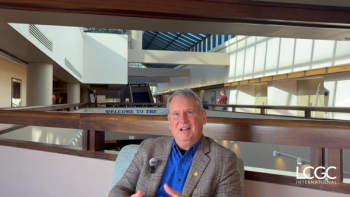
Analytica 2024: Upcoming Workshop Previews
The 2024 Analytica conference will house multiple workshops that will discuss different aspects of analytical chemistry. Three of these workshops are herein explained in detail.
Analytica 2024 will be home to many different workshops this year. Taking place from April 9–11 in Munich, Germany, analytical scientists from different walks of life will have the chance to show off their research and discuss their insights into different aspects of analytical chemistry. Throughout the weekend, various discussions, including the ones listed in this article, will be held.
On Tuesday, April 9, Lennart Martens of VIB and Ghent University will highlight his research on how machine learning can help those researching precision medicine (1). Machine learning can help improve the analytical capability of instruments in fields like mass spectrometry. To demonstrate this, he discussed how models like MS2PIP [2] and DeepLC [3], specifically when coupled to the MS2Rescore [4] variant of the Percolator rescoring engine, can boost identification performance in complex samples and protocols by over 35%. These free software tools can boost information recovery from both existing as well as newly acquired data sets, with this capability extending across different instruments from different vendors and generations. This can allow for new types of data analysis to be created that investigate the unknown and underlying biology and pathology present in existing data sets. Additionally, these models can reveal new insights into molecular pathologies and potentially map networks of the coordinated activities of modified proteins. These findings, according to Martens, “should excite anyone in analytical life sciences about the possibilities offered by proteomics approaches today” (1).
Additionally, on April 9, Catherine Wong of the Peking Union Medical College Hospital in Beijing, China will discuss her research into mass spectrometry-based omics technology in the medical field (2). Mass spectrometry and ionization technology have been used in various beneficial ways, leading to various advances in the biological field, helping make research efforts more through and extensive in the process. By looking at important clinical questions, people have been able to create multiple high-throughput multi-omics technologies, including single-cell proteomics, glycomics, and more. Through investigating the unknowns in biomedical and clinical research, Wong believes that scientists can help establish standardized procedures for developing and verifying clinical biomarkers and benefit overall human health.
On Wednesday, April 10, Ondřej Peterka of the University of Pardubice will discuss his team’s research into screening for early-stage pancreatic cancer using lipidomic blood profiling (3). For this experiment, the team analyzed 830 lipid profiles, consisting of pancreatic cancer (PaC) patients and control samples. This was performed with ultrahigh-performance supercritical fluid chromatography (UHPSFC), which found significant dysregulation of sphingomyelines, ceramides, and (lyso)phosphatidylcholines in certain samples. With help from cooperating laboratories in Germany and Singapore, different mass spectrometry approaches were shown to dysregulate lipids. 93 samples were evaluated for diagnosing high-risk individuals, which was done with 94% specificity. Combined with automatic data processing and multivariate statistical analysis, high-throughput UHPSFC/MS proved to be innovative for detecting early-stage pancreatic cancer. Through these clinical validations, the scientists were able to determine the effectiveness of the Lipidomic Diagnostics of Pancreatic Cancer (LDPC) test and compare their results with conventional EUS and MRI diagnostics. With these findings, the scientists believe the LDPC test can be suitable for a national screening program for detecting pancreatic cancer in its early stages.
To learn more about these workshops and others occurring at Analytica 2024, please find the program
References
(1) Martens, L. Machine Learning-Powered Floodlights to Illuminate Precision Medicine. Analytica 2024.
(2) Wong, C. Mass Spectrometry-Based Omics Technology in Life Science and Biomarker-Driven Translational Medical Research. Analytica 2024.
(3) Peterka, O.; et al. Early Screening of Pancreatic Cancer Based on Lipidomic Blood Profiling: From Academic Laboratory to Clinical Practice. Analytica 2024.
Newsletter
Join the global community of analytical scientists who trust LCGC for insights on the latest techniques, trends, and expert solutions in chromatography.



